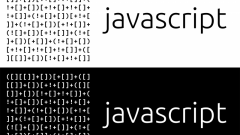Instruction
1
Do not confuse Java applets with Java scripts. Scripts are snippets of code written in Java language and executed directly by the browser. Applets also pre-transferred in a cross-platform intermediate code and executed by the plugin. For speed of execution, applets are intermediate between scripts and programs in machine code.
2
Make sure the computer has the Java plug-in. To do this from another browser in which Java plug-in is guaranteed to be included, go to the following page:
http://java.com/ru/download/installed.jsp
Click the "Verify Java version".
http://java.com/ru/download/installed.jsp
Click the "Verify Java version".
3
If you find that a plugin is missing or it is outdated, download it from the following page:
http://java.com/ru/download/manual.jsp?locale=ru
There are versions of this plugin for various operating systems, including Linux and Windows the most common versions. The method of installation depends on Your operating system.
http://java.com/ru/download/manual.jsp?locale=ru
There are versions of this plugin for various operating systems, including Linux and Windows the most common versions. The method of installation depends on Your operating system.
4
Launch the Opera browser and open the settings panel. To do this in older versions of the browser, select the menu item "Tools" - "Settings", and the new "Settings" - "General settings".
5
Open the "Advanced" tab and then on the left list select "Content".
6
Check "Enable Java". Tick the "Enable plug-ins" do not pay attention - it is designed to control other plugins, such as Flash. Click OK.
7
The Opera browser allows you to keep the Java plugin is enabled or disabled for all sites except those that specify otherwise. To adjust for a specific site, first select it, and then using the right mouse button open the context menu. Select "Settings for your site".
8
In the opened window choose tab "Content". Check or uncheck "Enable Java", and then click OK.

